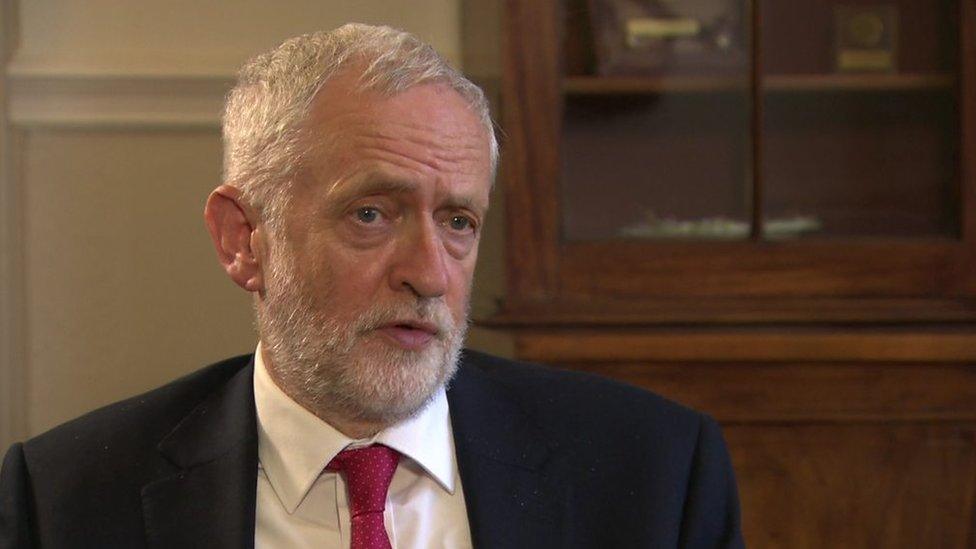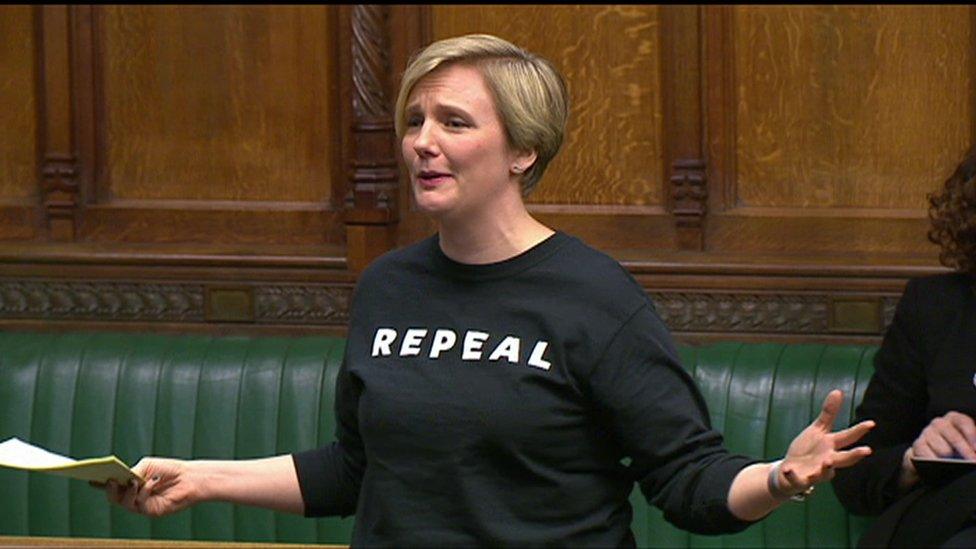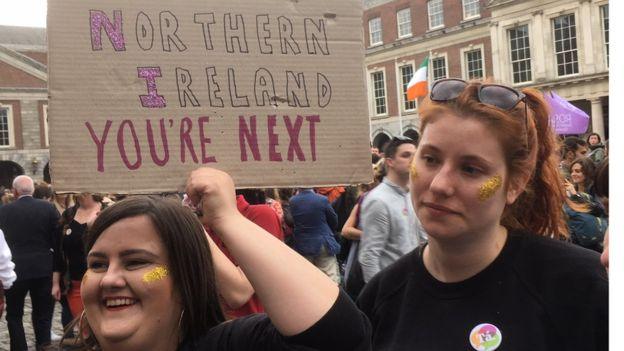Could referendums resolve those 'red line' Stormont issues?
- Published

When Jeremy Corbyn visited Queen's University in Belfast I asked him whether Downing Street would be neutral on a future border poll if he was Prime Minister.
Mr Corbyn replied in the affirmative, declaring that a Labour government would implement the Good Friday agreement "to the letter".
Subsequently, on Twitter, some people took me to task, claiming my question was misinformed. They cited the section of the Good Friday Agreement, external which commits the British and Irish governments to hold concurrent referendums (or should that be referenda?) stating that "it is for the people of the island of Ireland alone, by agreement between the two parts respectively and without external impediment, to exercise their right of self-determination".
This raises the question of what constitutes an "external impediment"? Does it mean the UK government must take no part in any Border Poll campaign, in contrast to David Cameron's previous active role in the Scottish independence referendum?
Or does it simply require a UK government not to stand in the way of facilitating a united Ireland should a border poll endorse that outcome? Could government ministers campaign, but only in their capacity as party representatives?
Repeal the Eighth
I suspect this could be the stuff of future court cases should a border poll ever become a reality. For now, there is a contrast between Jeremy Corbyn's declared neutrality and the last Conservative manifesto, which pledged the party to "never be neutral in expressing our support for the Union."
For her part, the Secretary of State Karen Bradley insists the conditions do not exist for a border poll". So we may have to wait some time to test out the 'no external impediment' argument. But what about referendums on other topics?
The resounding victory for Repeal The 8th campaigners in the Irish Republic has led some to argue Northern Ireland should follow suit. The preferred option for local Pro-Choice groups is that Westminster politicians should act in the absence of a Stormont assembly. They believe they enjoy the sympathy of many Conservative and Labour MPs.

Stella Creasy made her feelings clear on the Eighth Amendment referendum
Perhaps the swiftest option for action would be an amendment to a forthcoming Domestic Abuse Bill, which is being proposed by Labour's Stella Creasy. However it's possible the Commons Speaker could rule such an amendment out of order because it departs so radically from the basic purpose of the bill.
Another route would be a Private Member's Bill, but the precedent of Conor McGinn's bill on same sex marriage isn't promising as it appears destined to fall foul of the parliamentary system. In that case some MPs, like the Health Committee chair Sarah Wollaston suggested a referendum on the abortion law in Northern Ireland may be the best way forward.
'Three-pronged referendum'
This would depart from UK tradition in which referendums have been used for constitutional rather than policy matters. However, given Northern Ireland is being run by unelected officials with severely constrained decision making powers, you could argue that we departed from the good governance textbook rather a long time ago.
Given the obvious need to placate their pro life parliamentary allies in the DUP, it's hard to imagine the current government rushing to call an abortion referendum.
If they did, others might ask why just abortion? Why not same-sex marriage, the Irish language act or even a border poll? Back in January three Unionist veterans, external themselves suggested a three pronged referendum on abortion, same-sex marriage and the Irish language could clear away some of Stormont's most contentious red lines.

Attention quickly shifted to Northern Ireland's abortion laws after the Irish referendum
That sounds rather radical for a Northern Ireland Office with a track record of doing the bare minimum. But in the unlikely event that the Secretary of State is mulling over the pros and cons of an abortion referendum, she might also consider that answer Jeremy Corbyn gave me at Queen's University.
The DUP would, no doubt, be angered by any decision which challenges their long established anti-abortion policy. But would that anger really stretch to any parliamentary response, which might risk making the prospect of Jeremy Corbyn taking up residence in Downing Street any more of a likelihood?